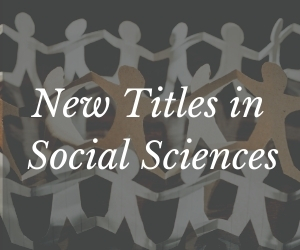The Divided City contributes to the growing body of scholarly work on cities of the global South. Cities in developing countries, particularly emerging economies, are undergoing rapid urbanization and social transition. Empirically grounded to the contemporary urban situation in India, The Divided City is set in an opportune moment to assess how cities fare up to the challenge of inclusive urbanization. It highlights how the urban pathway of contemporary India departs from the goal of inclusion in multiple ways — access to energy, public services, architecture, land, infrastructure, commons, and cultural and civic spaces. It simultaneously interrogates both policy and theory with intermingling issues like informality, privatization, political economy and gender divide in the contemporary Indian city. The book argues for greater urban inclusion (social, economic and environmental) acknowledged in principle, in national and international urban policy frameworks.
Sample Chapter(s)
Foreword
Preface
Chapter 1: Ideological and Policy Contestations in Contemporary Urban India
Contents:
- Ideological and Policy Contestations in Contemporary Urban India
- Trajectory of Spatial and Social Segregation in Urban India
- Erosion of Public Space
- Equitable Access and Political Economy of Basic Urban Services
- Divided Activisms and Civic Spaces
- Urbanscapes: The Traditional–Modern Divide and Its Contemporary Implications
- Cities as Hubs of Regional and Global Climate Inequities
- Conclusion and Way Forward
Readership: Researchers and students specializing in urban sociology, urban geography, urban planning, policy and governance or those investigating the urban situation in the South Asia and anyone who is interested in deeper understanding of the contemporary city from socio-economic equity and inclusion perspective.
Dr Binti Singh is an urban sociologist and her expertise traverse the disciplines of urban planning, policy and governance. She holds a Ph.D. (urban studies) and an M.Phil. (Planning and Development) from the Indian Institute of Technology (IIT Bombay), Mumbai, India. Currently, she is engaged as an Independent Consultant with think tanks, corporates and international institutions like the National Geographic and Deakin University, Australia. She regularly contributes as a columnist to dailies and magazines like the Business World, Domus India, KNN India and smart city portals like EletsEGov. She teaches at various Universities and Research Institutes across India and speaks at multiple forums including government, non-government, industry and corporates. Of late she has been very active in Smart City Forums and Summits and brings in a social science perspective to the current narrative on smart cities in India. Her current research engages with questions on Inclusion, Climate Change, Urbanisms and Smart Cities. Her ethnographic work on Lucknow is compiled into another book titled Lucknow: Culture, Place, Branding and Activism launched in 2018. She is working on book projects with international publishers like Springer and Routledge, Taylor & Francis. Her other recent publications include: 1) Unravelling Redevelopment in the Megacity Context of India: The Case of Mumbai in Coming of an Age: Trends and Issues in Housing in Asia, Routledge- Taylor & Francis (2017) with Prof Manoj Parmar, KRVIA Mumbai 2) Synchromesh Urbanism and Street Economies, 10th International Forum on Urbanism- The Entrepreneurial City, School of Architecture, Chinese University of Hong Kong, (December 2017) with Prof Manoj Parmar, KRVIA Mumbai, 2) The Heritage Arc and After-An Exploration of Recent Policy and Practice to Promote Tourism in Contemporary Lucknow, Urban India, Vol 6 (Issue 2), (July -December 2016), National Institute of Urban Affairs, New Delhi.
To know more about her work and read her blogs please visit her Website: www. drbintisingh.com or write to her at hello@drbintisingh.com.
Dr Mahendra Sethi is an urban environment expert, and his research explores the role of developing cities at the interface of global change and local governance. He is a fellow with Landuse, Infrastructure and Transport group of MCC and TU-Berlin; an early-career researcher of Earth Systems Governance 2014, University of East Anglia, UK; and a recipient of United Nations University — Institute for the Advanced Study of Sustainability (UNU–IAS) PhD Fellowship in Tokyo, Japan. In India, Mahendra is Associate Professor in the Faculty of Architecture at Dr A P J Abdul Kalam Technical University, Lucknow. In the past, he was associated with the National Institute of Urban Affairs as Editor of the research journal Urban India. Mahendra started his career with development consultancy, appraisals and formulation of urban, regional and environmental plans for national/state governments, statutory bodies, private sector and international organizations, including the World Bank and World Wide Fund for Nature. He has published extensively in scientific journals, peer-reviewed books, etc. including Climate Change and Cities: A Spatial Perspective of Carbon Footprint and Beyond, a seminal research into economic development, urbanization and GHG patterns of over 200 countries (Routledge–Taylor & Francis) and Climate Co-benefits in Indian Cities (Springer Nature), a volume synthesizing findings of researchers from India, Japan, France, UK and USA. Mahendra regularly disseminates research through tutorials, special lectures and trainings on urban environmental, social and policy issues in national and international conferences, workshops, etc. He is a recipient of the Government of India's Ministry of Human Resource Development Scholarship (2005–07) and was also offered the Liverpool University Scholarship (2005).























